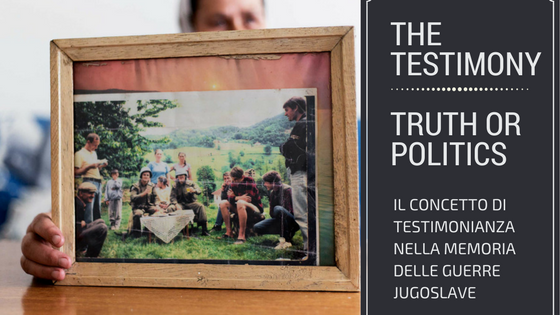The Testimony – Truth or Politics
Start date: 01/01/2017
End date: 31/12/2017
Funder: Unione europea
Operational unit: OBC Transeuropa

Twenty-five years after the outbreak of the Yugoslav wars, much still needs to be done to integrate the memories of this chapter of recent history in the reflection about the wider European space of memory. THE TESTIMONY - TRUTH OR POLITICS is a project aiming to publicly reflect on the Yugoslav dissolution, placing centre stage individual testimonies of those who experienced the conflict, taking sides or opposing resistance to it.
 See the page: Testimony – Truth or Politics
See the page: Testimony – Truth or Politics




